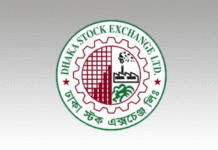TBS

Highlights:
- NBR mandates audits for previously unaudited taxpayers’ files
- One-third of audits must target never-audited tax returns
- Zero-income and low-profit returns now subject to audits
- New taxpayers’ files can be audited if “high-risk.
- Audit selection moved from manual to automated software system
- Experts welcome rule, stress accountability and reduced corruption
Companies that have managed to avoid any form of audit on their tax files for years in collusion with corrupt tax officials are now set to come under audit in the future.
Under the new “Income Tax Return Audit Instructions,” issued by the National Board of Revenue (NBR) yesterday, one-third of all returns selected for audit by any tax office must now come from taxpayers whose files have never before been audited.
An NBR official, who requested anonymity, told TBS, “In the past, some corrupt officials would conspire to keep certain assessees out of the audit purview for years, making it impossible to detect tax fraud. This new rule will significantly reduce the opportunities for such irregularities.”
The new directive also states that even those who file zero-income or low-profit returns will be subject to an audit. Additionally, the previous unofficial rule of not auditing new taxpayers in their first year will no longer be in effect, with “high-risk” new tax files now also being selected for an audit.
Abdur Rahman Khan, chairman of the NBR, said the new process for selecting audit files has been made transparent. He added that individual taxpayers’ files will no longer be selected manually, but will instead be chosen by a software based on specific criteria.
NBR officials say the new directive specifies which tax files will be audited and outlines the responsibilities of the officials. This will restore order to the audit system and alleviate audit-related fears among taxpayers, they say.
Tax experts have welcomed the move. Snehasish Barua, director of SMAC Advisory Services Limited, noted that requiring one-third of the audited files to be from previously unaudited taxpayers will ensure greater accountability.
“If companies are compliant, they have no reason to be afraid. However, in Bangladesh, audits have often been linked with harassment. If NBR can build taxpayer confidence in the process, there will be no reason to fear—except for those engaged in irregularities,” he said, stressing the importance of automated selection of audit files based on risk assessment.
In previous years, audit selection lacked specific guidelines, often targeting files with reported losses, refund claims, or gifts. This led to widespread allegations of tax officials using the threat of audits to demand unofficial financial benefits from taxpayers.
While the NBR typically aims to audit 5% of all submitted tax returns, officials say the actual rate has historically averaged only about 2%. Annually, over 25,000 companies and more than 40 lakh individuals submit tax returns in the country.









